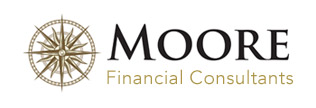There are lots of factors to consider before you start planning your retirement. It’s an important decision and can make all the difference to your lifestyle in retirement. With the right information, you should be in full control of when and how you take your money. Because there are several pension options available to you, deciding what’s best for you can be difficult. So, when you’re choosing your retirement option, having all the information you need is key. We’re here to help you understand your options and will guide you as you take the next steps in planning your financial future.
The Top 10 Questions we are asked?
-
What is a pension?
A pension is a long-term savings plan that helps you save for your future.
Unlike a regular savings account, money invested in your pension can earn important tax breaks. And when you retire and look for access to your fund, the benefits can be available in a tax efficient way.
-
Why take out a pension?
These days we are living longer than previous generations. In fact, most of us can now look forward to 20 or even 30 years of retirement. A pension plan is the most tax efficient way of saving for your future. For many people, this is not a benefit of their particular employment and is easily overlooked.
-
What are the types of pensions available?
The government provides tax relief for certain revenue approved pension products to encourage people to save for their retirement. The different types of schemes are:
Types of schemes |
Who can take it out |
| Public Sector pension | Employees of government dept, state bodies and state companies |
| Occupational Pension Schemes. Exec Pension | Set up by employers for their employees |
| Personal Pensions / RAC | Usual method for Self-employed or persons not in an occupational pension. |
| PRSA/ AVC PRSA | Can be used as an alternative to a Personal Pension / RAC. Can also be used for people in occupational schemes to make additional contributions. |
-
What income tax relief will I get?
Income tax relief is still available on contributions made personally to a personal pension plan, PRSA or employee/AVC contributions to an occupational pension scheme. Income tax relief is available on up to 40% of the contribution for a top rate tax payer, or 20% for a standard rate tax payer. Those who both pay and file their tax returns through the Revenue Online Service (ROS) have until Tuesday, 14th November 2018 to pay a pension contribution and elect to backdate the income tax relief against the 2017 tax year. Those who do not qualify for the ROS extension must do this by 31st October 2018.
-
What is the maximum Pension Contributions Allowed?
The following table sets out the maximum allowable tax relief limits for pension contributions based on increasing age bands:
Age |
% of Net Relevant Earnings |
| Up to 29 | 15% |
| 30 – 39 | 20% |
| 40 – 49 | 25% |
| 50 – 54 | 30% |
| 55 – 59 | 35% |
| Over 60 | 40% |
-
Where does my money go, how is it invested?
The most popular investment choice is managed funds. These are investment vehicles in which the monies of numerous investors are pooled together and the entire pool used to purchase assets, i.e. equities, bonds, property, cash etc. depending on the particular fund. Each investor’s share in this pool is represented by a certain number of units. You can choose from a range of different funds to suit your attitude to risk. These include lowrisk deposit- type funds, mediumrisk funds and higherrisk funds that are mostly invested in the stock market. You can also invest in Direct property or stocks and shares of your choice.
-
How do I access my pension?
How you access your pension at retirement depends on the type of scheme and the rules of the scheme. Usually, it is made up of some or all of the following: A tax free lump sum / Annuity /ARF/ Taxable lump sum.
( A) Lump Sum
| Public sector | Up to 1.5 times salary |
| Defined Benefit Occupations Schemes | Up to 1.5 times salary / different rules for owner directors |
| Defined contribution schemes | Max 25% lump sum |
| Personal Pension/ RAC/PRSA | Max 25% lump sum |
( B ) Annuity
An annuity converts the money in your pension pot into income guaranteed for the rest of your life, no matter how long you live. There’s a range of annuity options to choose from, including automatically increasing payments and a guaranteed income for your partner after you die.
( C ) Approved retirement fund
An ARF is more flexible than an annuity as it allows you to keep your funds invested and decide how much taxable income you wish to withdraw each year. It gives you more control over how your pension pot is managed, and you can pass on any remaining fund when you die. When you retire you have to decide what sort of ARF you wish to invest in. This is another crucial decision you must make. We highly recommend you talk to us when choosing the right ARF for you. If you have an existing ARF we can also review your investment choice and explain your future options.
-
Why can’t I just take all my pension pot as cash?
The government wants to make sure that your pension generates an income for you when you retire. This reduces the risk that you’ll need to rely on the state in your old age.
-
I have a Pension Bond what should I do?
When you leave employment you may have been offered to make your pension “paid up” or take it into a Pension Bond. By taking out a Pension Bond you retain the control. It avoids the need to look for trustees of your pension scheme many years after you have left an employment. We are experts in advising on Pension Bonds ( also know as Personal Retirement Bonds / Buy out Bonds ) , get in touch today for the most up to date information.
-
I have several pensions, should I consolidate?
This may be a good idea. It’s easier and often more cost effective to transfer your pensions into the one pot. First check that you are not giving up any valuable guarantees or you will not be charged. If you have a UK pension you may be able to transfer this to Ireland. Assuming you can bring your UK pension home, you need to put it into a Qualifying Recognised Overseas Pension Scheme (QROPS). This is a very technical area, so we would strongly advise you talk to us before you make any decision.
How can we help?
Moore Financial Consultants will work with you to review your pension arrangements. We provide personalised, unbiased advice and have a range of tax approved pension structures that offer you investment flexibility, control and transparency. To speak to any of the team today please phone on 058 86009
Important information
Nothing in this article constitutes legal, financial or other professional advice. The information is based on our understanding of current law, and revenue practice as of June 2018. E&OE.
Eamonn J Moore Ltd trading as Moore Financial Consultants is regulated by the Central Bank of Ireland.

